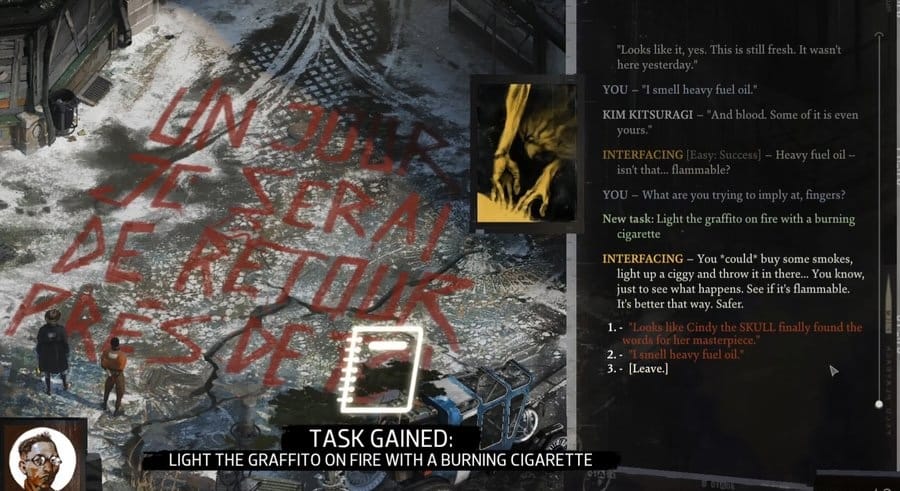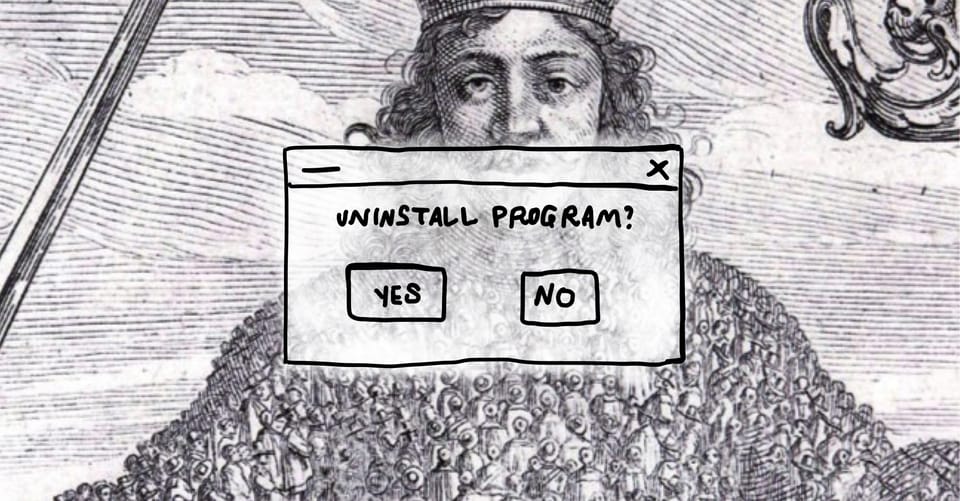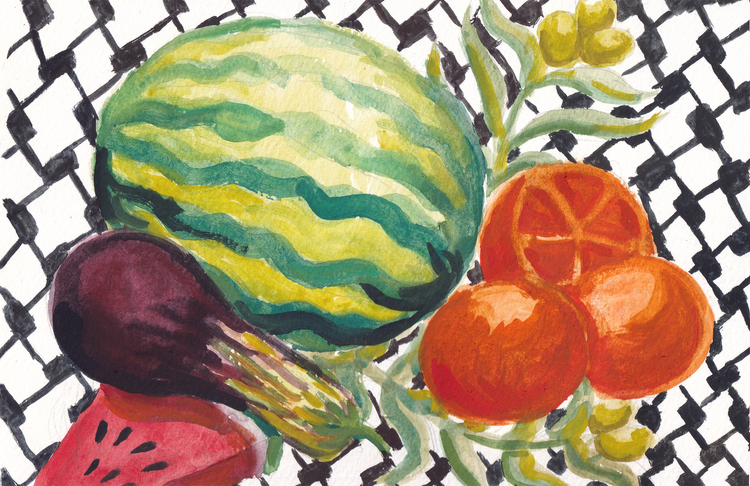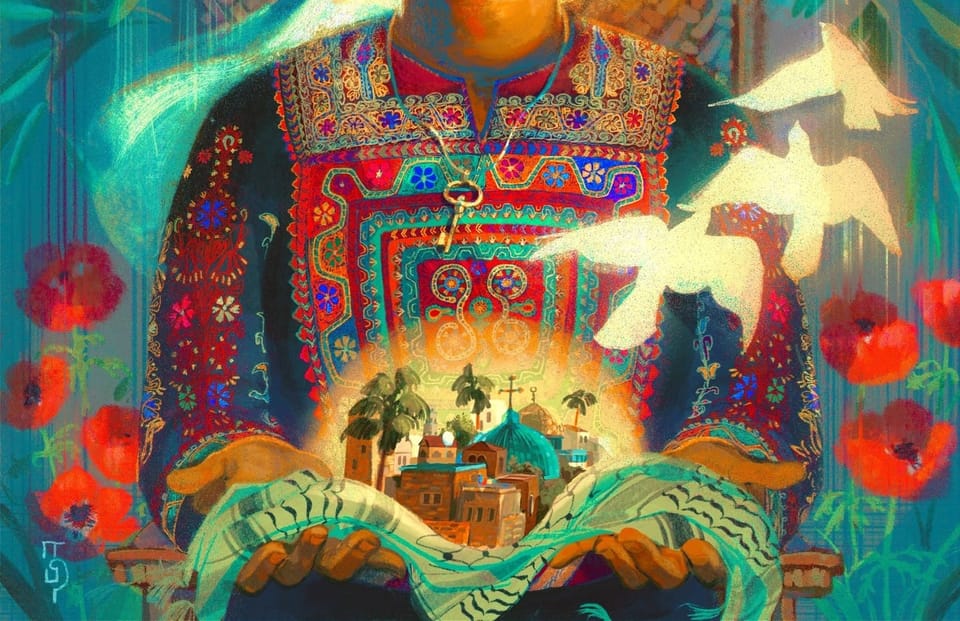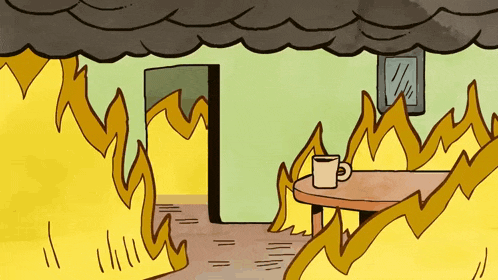Doomerism is a transitional phase
"What will capitalists do when there is nothing left to invest in except each other?"
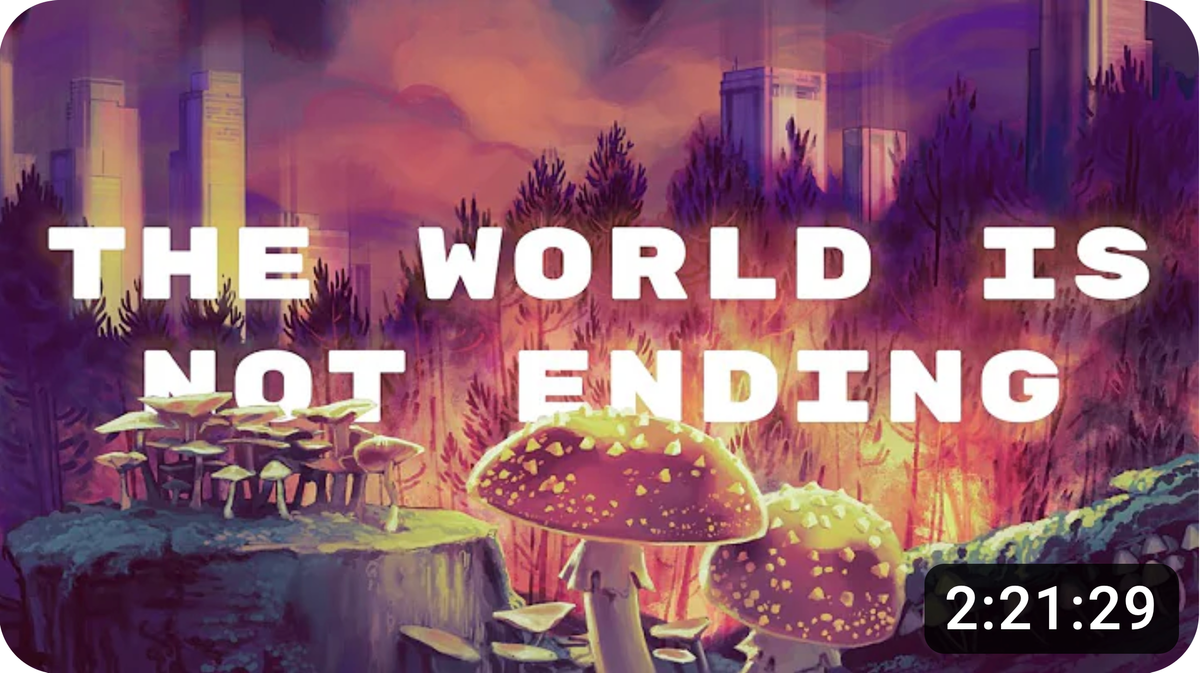
When did I realise I was a doomer? Maybe when the initial excitement from scientists about changes in our ecology in 2020 began to feel like a distant memory. I started playing Disco Elysium— but abandoned it when an in-game conversation with Sunday Friend gave me professional psychic damage. In an open tab, Phoebe Bridgers dressed as a skeleton and sang a haunting cover of maybe the most doomer song of lockdown back to its maker in the audience. In October 2021, I dined outside for the first time again. Encouraged, I planned to go on a roadtrip at the end of that year to the event of a local artist who lives by mangroves and an oil refinery, but her exhibit was flooded in December storms. I stayed home. On Christmas eve, Netflix releases Don't Look Up, a movie where people did not take scientist warnings about a comet seriously enough and died. As 2021 melted into 2022, I started crawling out of the doomer hole I fell into, seeking out books like Rutger Bregman's Humankind: A Hopeful History (very helpful), and cosying up to philosophical longform video essays made by leftist babes with citations and good anger.
All this to say that I feel like 2023 is the year I did good work on changing my outlook about the future and humanity, yet I still felt very much targeted when SophieFromMars in August dropped the absolutely riveting The World Is Not Ending, looked into the camera and said that doomerism is a paralysing and unrealistic approach to the politics of the future. That it is naive to assume that existing power relationships will hold firm through total crisis. And many other things I thought about for months after.
Three-part video essay, each is about 40 minutes: 00:00 Part 1: The Uninhabitable Earth 40:31 Part 2: How To Blow Up A Pipeline 01:24:35 Part 3: The Mushroom At The End Of The World. Each part is named after a book that Sophie refers to in the essay.
She said she didn't make this essay to give anyone hope, and alhamdulillah by then I did not feel like I needed any. But it did feel like a charming person suddenly paused to tie my shoelaces for me in seconds so we could all get going. It felt like I found language that I needed for years to come. She even pointed out why Don't Look Up was a pessimistic distortion of reality. I usually hesitate to send long video links to friends, but I remember sending this one out immediately, and also over many months, saying some version of 'I think this video is going to be my personality for the next few years.'
Now we are in October 2023, how prescient this video essay still feels (as well as all eleven minutes of GDF's How Isrl Lies About Literally Everything from April 2023). So I made a summary I want to leave here for me to send whenever it comes up in conversation, as a baseline of sorts.
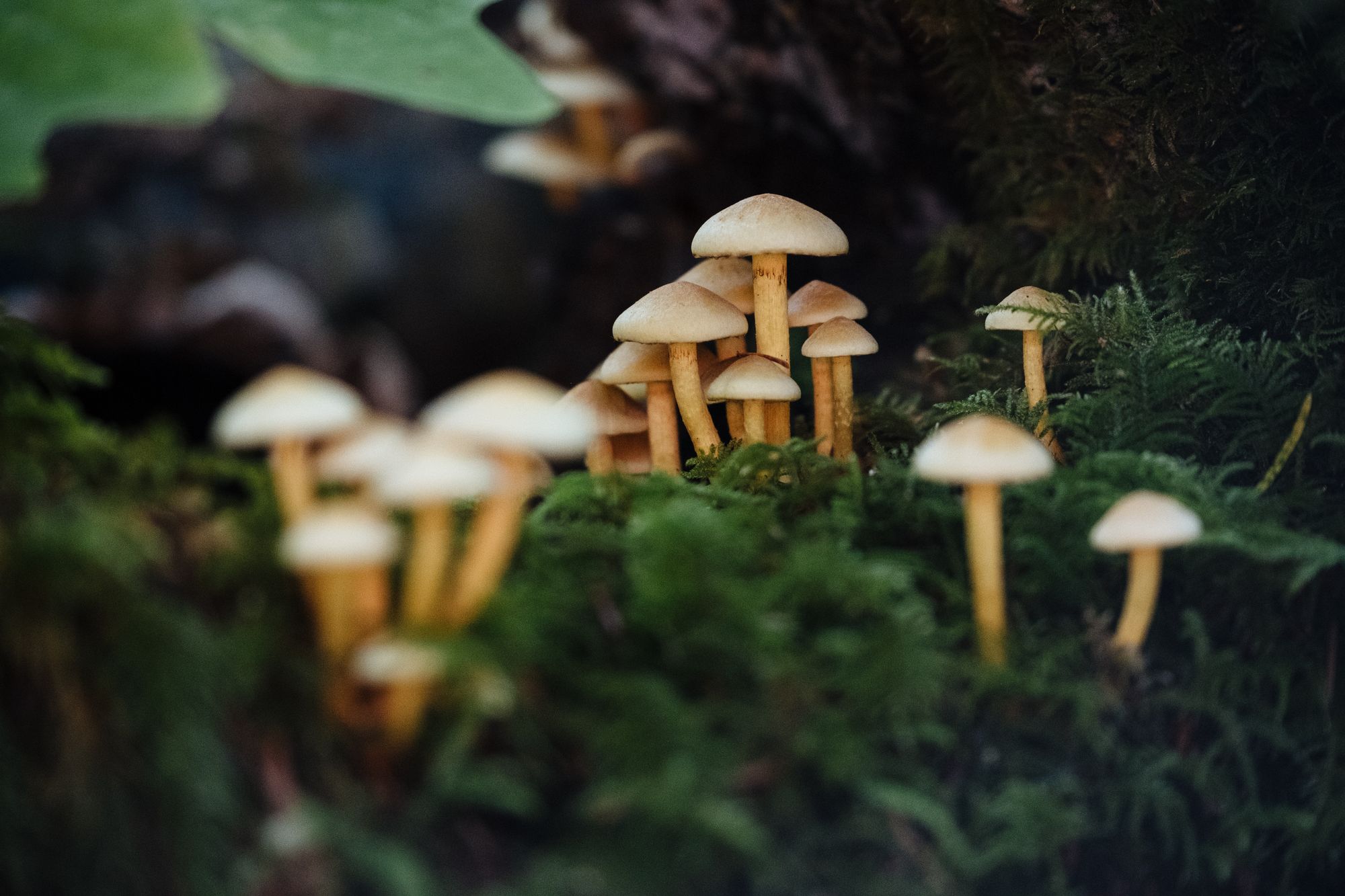
Notes after The World Is Not Ending
All of this is likely to happen next, regardless of how hopeful you feel. Summary by Liy Yusof
- Capitalist systems will never stop the climate crisis. This is because climate change is the result of exploitative systems functioning normally.
- In a climate emergency, capitalism will inevitably make capitalism impossible. Dominant systems will fail to provide stability to the working class people they draw their power from.
- It is not the world ending, but the current political order. Revolution to the end of the climate emergency is inevitable, just a question of what kind and when. The sooner we resist, the better the world gets to be.
- A parallel power to the state's diminished presence will emerge in structures of mutual aid that people will form. Safety and stability will come from networks of care that people form to provide for each other as empires fail them and more withdraw from capitalist systems.
- In all scenarios, we will have to learn how to care for each other, our neighbours, and reimagine relationships between many kinds of beings. We need to shift priorities in the face of inevitable systemic change, and we need stories to help us find post-capitalist desire.
1. Capitalist systems will never stop the climate crisis. This is because climate change is the result of exploitative systems functioning normally.
Global warming cannot be stopped without dismantling the capitalism of the imperial core. Because of corporate self-interest, what we can expect from neoliberal states handling crises is the absolute minimum and then harmful pressure to put the workforce back into action. Capitalist realists know what they do is nothing, but believe their actions are abstract and disconnected from consequence. Even being a climate doomer first and foremost assumes a level of security within the imperial core.
2. In a climate emergency, capitalism will inevitably make capitalism impossible. Dominant systems will fail to provide stability to the working class people they draw their power from.
Our complicity in capitalism is how the ruling class can do the damage they have done and continue to do to our ecology. World leaders cannot be convinced to listen to what is moral over what the ultra-wealthy wants. The ruling class will want to escape what comes next. But as climate change diminishes capitalist resources, the wealth used to instruct the working class will run out, or mean less and less. We are the ones who carry out the instructions, and while money may be instructional, we can refuse the instructions. Capitalist systems will increasingly lose the ability to offer stability to everyone.
3. It is not the world ending, but the current political order. Revolution to the end of the climate emergency is inevitable, just a question of what kind and when. The sooner we resist, the better the world gets to be.
Capital's power will weaken because it depends fully on people, and people do not want to die. It is a failure of the imagination to underestimate the defiance of people who want to live. The sooner we resist the sabotage of the environment together, the better the world gets to be. If we can stop believing the world is going to end, we have a chance of stopping it from ending. Why treat uncertainty like a total ending? Instead of a comet cancelling us all at once, what's likely true is that the reality of our next 100 years hinges on precarity than anything else.
4. A parallel power to the state's diminished presence will emerge in structures of mutual aid that people will form. Safety and stability will come from networks of care that people form to provide for each other as empires fail them.
To figure out a more precarious future, ask what will we do when there is nothing left to invest in except each other. Capitalist systems will continue to disappoint people, and people will withdraw their dependence on capitalist states and form community care structures instead. People do not have to have the same politics to do this. Capitalist states are often hostile to people organising in this way, but they are incapable of taking care of our material realities. A parallel power to the state's diminished presence will emerge in the structures of mutual aid that people will form.
5. In all scenarios, we will have to learn how to care for each other, our neighbours, and reimagine relationships between many kinds of beings. We need to shift priorities in the face of inevitable systemic change, and we need stories to help us find post-capitalist desire.
Modern progress is not inherently dependent on planetary devastation, and it won't disappear when we get rid of fossil fuels or capitalism. It is the uncertain, dispossessed and precarious who will shape the future. In the face of deep large-scale change and systems collapse, we need guiding narratives to free ourselves, recognise other living beings as persons, and re-imagine relations between many kinds of beings. Stories can help us understand what is happening in our world and what our lives could look like. In all scenarios, more and more of us will have to learn how to care for each other, our neighbours, ourselves. But to imagine a better world together, we must first reject the idea that the world is going to end. The future is unknowable and determined by how hard we fight now for a more loving world.
I hope I can tempt you to put on SophieFromMars directly— after watching her video essay twice, I know for sure that my notes are no replacement for experiencing her work!
References
Sophie from Mars | The World Is Not Ending (Patreon), 17 July 2023 https://www.patreon.com/posts/world-is-not-86184378
Arwa Mahdawi for The Guardian | Millennials aren't getting more rightwing with age. I suspect I know why, 3 January 2023 https://www.theguardian.com/commentisfree/2023/jan/03/millennials-radicalism-not-getting-more-rightwing-with-age
A SAG-AFTRA community organiser on organising with Fran Drescher even though she's an anti-vaxxer, 17 July 2023 https://www.instagram.com/p/CuxGXwPpHc3
PS: I was psychologically strong enough to restart Disco Elysium in 2023, finish it, and as the flammable graffiti burned, recognise it as one of the most beautiful games I'd ever finish in my lifetime.
